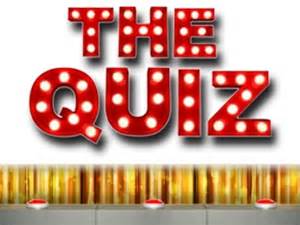Happy Monday! Go Cats Go! No Sleep Till Brooklyn!
Friday’s questions are here. The answers follow today’s Honor Roll.
Honor Roll
- Matthew Anderson, Pratt Vreeland Kennelly Martin & White
- Penny Benelli, Dakin & Benelli
- Alberto Bernabe, Professor, UIC School of Law
- Beth DeBernardi, Administrative Law Judge, Vermont Dept. of Labor
- Andy Delaney, Martin Delaney & Ricci
- Benjamin L. Gould, Paul Frank + Collins
- Margo Howland, Howland Law Offices
- Glenn A. Jarrett, Jarrett/Hoyt
- Keith Kasper, McCormick Fitzpatrick Kasper & Burchard
- Douglas Keehn, Assistant Attorney General, Medicaid Fraud & Residential Abuse Unit
- Mark H. Kolter, Darby Kolter & Roberts
- John T. Leddy, McNeil Leddy & Sheahan
- Jordana Levine, Marsicovetere & Levine
- Pam Loginsky, Pierce County (WA) Prosecutor’s Office
- Lon T. McClintock, McClintock Law Office
- Jack McCullough, Project Director, Mental Health Law Project, Vermont Legal Aid
- Jeffrey Messina, Flynn Messina
- Hal Miller, Esq.
- Team MOB-kingbird
- Herb Ogden, Esq.
- Patrick Olmstead, Patrick Olmstead Law
- Keith Roberts, Darby Kolter & Roberts
- Joe Strain, Marsicovetere & Levine
- Jonathan Teller-Elsberg, Staff Attorney, New Hampshire Legal Assistance
- Jason Warfield, Jason Warfield Family Law & Mediation
- Thomas Wilkinson, Jr., Cozen O’Connor
ANSWERS
Question 1
A lawyer called me with an inquiry. I listened, then replied: “the rule states that your first duty is to try to maintain a normal attorney-client relationship with the client.”
Give my response, which is most likely?
- A. The lawyer’s client filed a disciplinary complaint against the lawyer.
- B. The lawyer learned that the client provided false evidence to the court.
- C. The lawyer’s client asked the lawyer to do something that would violate the Rules of Professional Conduct.
- D. The lawyer believes that the client’s capacity to make adequately considered decisions in connection with the representation is diminished. See, V.R.Pr.C. 1.14(a).
Question 2
There’s a rule that prohibits a lawyer from having a sexual relationship with a client. Which of the following is/are an exception(s) to the rule?
- A. A consensual sexual relationship existed before the attorney-client relationship was formed. See, V.R.Pr.C. 1.8(j).
- B. The client gives informed consent, in writing, to continuing both relationships, thereby waiving the potential conflict.
- C. A & B.
- D. Neither A nor B.
Question 3
Which situation does the applicable rule treat differently than the others?
- A. The representation has been rendered unreasonably difficult by the client.
- B. The representation has resulted in an unreasonable financial burden on the lawyer.
- C. Continued representation by the lawyer will result in a violation of the Rules of Professional Conduct.
- D. The client has substantially failed to fulfill an obligation to the lawyer and has been given reasonable warning of the consequences of the failure to fulfill the obligation.
The scenario in C requires a lawyer to withdraw. Scenarios A, B, and D permit, but do not require withdrawal. See, V.R.Pr.C. 1.16.
Question 4
Prospective Client (PC) contacted Lawyer. PC was seeking representation in a matter in which PC’s interests are materially adverse to the interests of one of Lawyer’s former clients. The new matter is substantially related to the matter in which Lawyer represented Former Client (FC). However, Lawyer does not remember anything about the representation of FC and no longer has access to the file.
Which is most accurate?
- A. Because the matters are substantially related to each other, Lawyer is presumed to have received confidential information from Former Client.
- B. Because the matters are substantially related to each other, Former Client will not be required to disclose confidences in order to protect them.
- C. A & B. See this blog post & video.
- D. Whether Lawyer can represent Prospective Client necessarily turns on how long ago the representation of Former Client ended.
Question 5
As history tells it, Cicero was one of the great Roman orators. He was also a capable & competent lawyer.
Long ago, and at exactly this time of year, Cicero used all his skills to mediate a resolution between two groups: people who had conspired to commit murder, and people who were supporters of the famous victim.
Who was the victim?
Bonus: As history also tells it, before the crime took place, what warning did the victim receive from a “soothsayer?”
Julius Caesar & Beware the Ides of March














